+86 13816508465
Pump Knowledge
Aug. 09, 2024
A high-quality water pump is not just a tool; it's a key component in the success of various industries, including industrial facilities, agricultural fields, and residential complexes. It's also a valuable asset for distributors, wholesalers, and retailers looking to meet diverse customer needs and boost sales.
Let's dive into the world of high-quality water pumps and equip you with the knowledge to choose and maintain the ideal pump for your situation. We will also explore what it is, how it works, and also most important questions regarding high-quality water pump.
Water pumps are fundamental components that move and distribute water throughout a wide range of applications. Their primary function is to transfer water from one location to another, often overcoming changes in elevation or pressure to ensure a continuous and reliable water supply.
Impeller:This is the rotating part of the pump that creates the suction and pressure required to move the water. The impeller's design and rotation speed directly impact the pump's flow rate and pressure output.
Pump Casing:The outer casing or shell surrounds the impeller and guides the water flow through the pump. It is designed to minimize turbulence and maximize the pump's efficiency.
Motor:An electric or engine-driven motor provides the power to spin the impeller and drive the water movement. The motor's size and output directly determine the pump's performance capabilities.
Inlet and Outlet Ports:These are the openings through which water enters and exits the pump, respectively. The size and configuration of these ports play a crucial role in the pump's overall flow characteristics.
Seals and Bearings:These components ensure the smooth and reliable operation of the pump by preventing leaks and minimizing friction between moving parts.
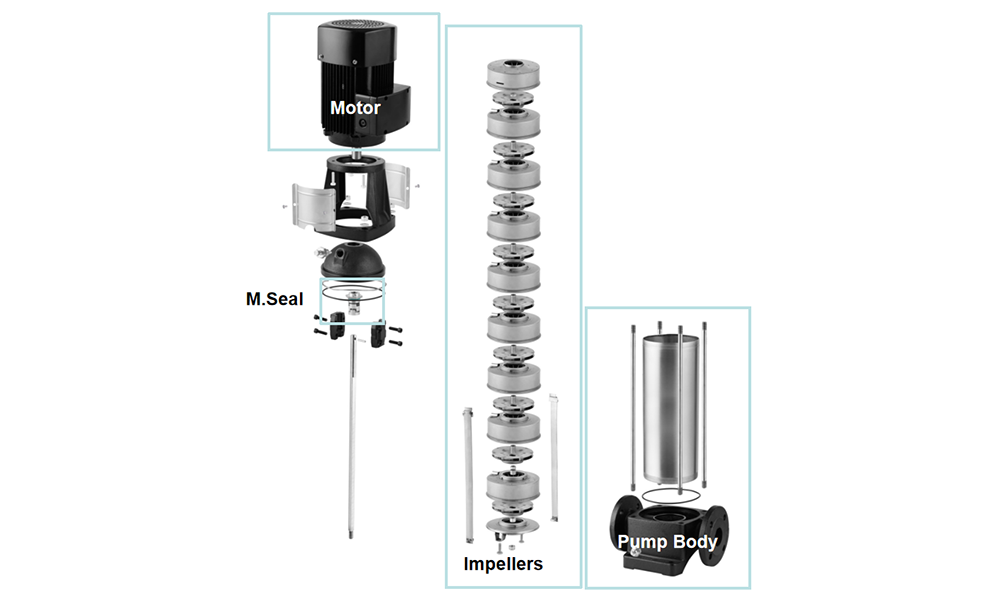
Municipal Water Supply: Water pumps are essential in urban water supply systems, extracting water from reservoirs or groundwater sources, transmitting and pressurizing the water before it reaches households for drinking, washing, and cooking.
Wastewater Systems:Water pumps are utilized for small-scale dewatering of ponds or drainage pits, as well as in large-scale wastewater treatment and municipal sewage discharge applications.
Agricultural Irrigation:Water pumps are a critical component in agricultural production, serving as the primary irrigation machinery. While their proportion has decreased with urban expansion, the increasing severity of droughts and the need for expanded irrigation have led to a continued increase in the number of agricultural water pumps.
Mining:In mining operations, water pumps are necessary for dewatering mine shafts, as well as for supplying water during the ore processing, smelting, and rolling stages.
Light Industrial Applications:Water pumps find use in a diverse range of light industrial systems, serving various fluid transfer and distribution needs.
Landscaping and Pools:Water pumps are integral to the operation of ornamental fountains and swimming pools, ensuring the continuous circulation and filtration of the water.

Commonly, centrifugal pumps are used in households. The impeller is spun by an electric motor. The impeller creates centrifugal forces that push water from the centre of the pump outwards towards the edges. This creates a low pressure in the centre. It allows the water to flow from the source into the pump. The impeller spins, increasing the speed and pressure of the water. The pressurised water then passes through the outlet of the pump or discharge port. Water is then sent through hoses or pipes to its final destination. This could be a faucet, sprinkler or any other outlet in the home.
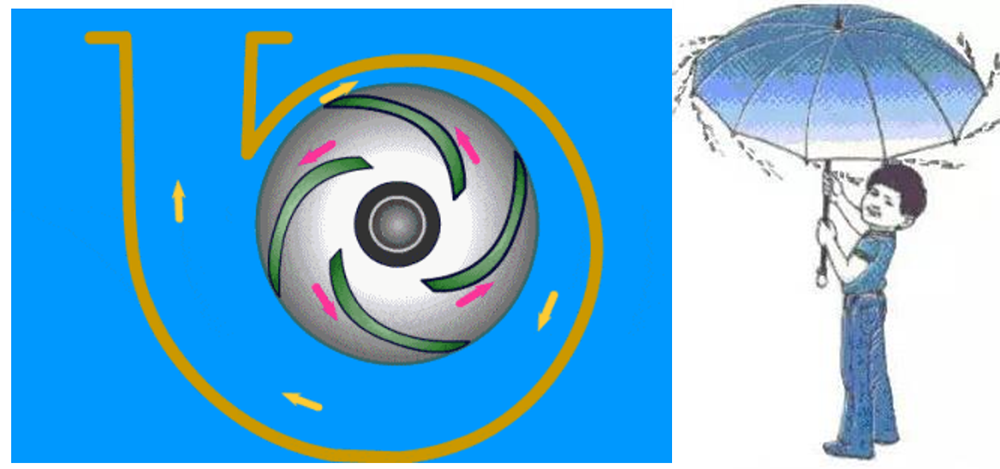
In order to make the best decision, you need to consider several factors. We will discuss key factors such as cost, efficiency, maintenance and customer service.
Assess your pumping needs before you start purchasing. Decide the amount of water that you will need to pump, which refers to ”pump’s flow capacity”, the desired pressure which refers to pumps’ lifting head, and the environment in which it will be used or the medium to be pumped.
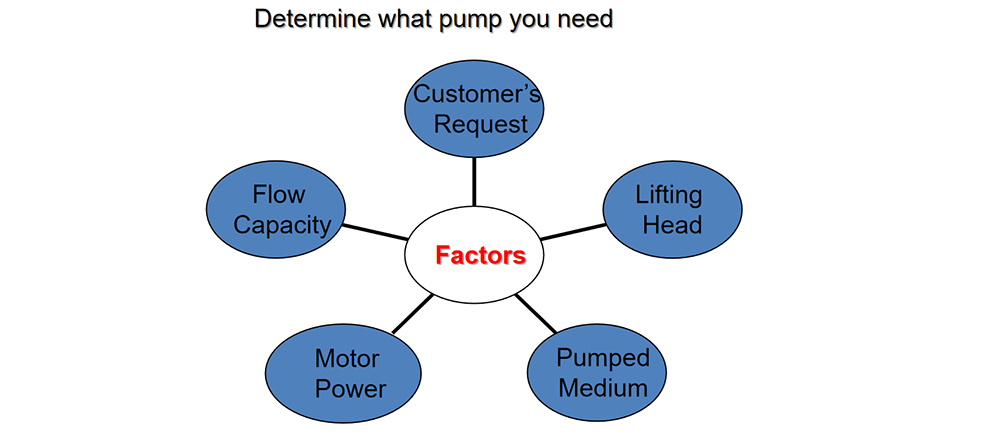
1.1 Customer’s requirements: Customers in different regions and markets may have special requirements for product appearance, unique features due to their level of awareness and preferences.
1.2 Flow capacity:Flow rate is one of the important performance data for selecting a pump. It is directly related to the production capacity and transport capacity of the entire system. When selecting a pump, the maximum flow rate should be used as the basis, while taking into account the normal flow rate. In the absence of the maximum flow rate, the normal flow rate can usually be taken as 1.1 times the maximum flow rate.
1.3 Lifting head:The required lift of the water system is another important performance data for selecting a pump. Generally, the lifting head should be increased by 5% to 10% as a safety margin when selecting the pump type.
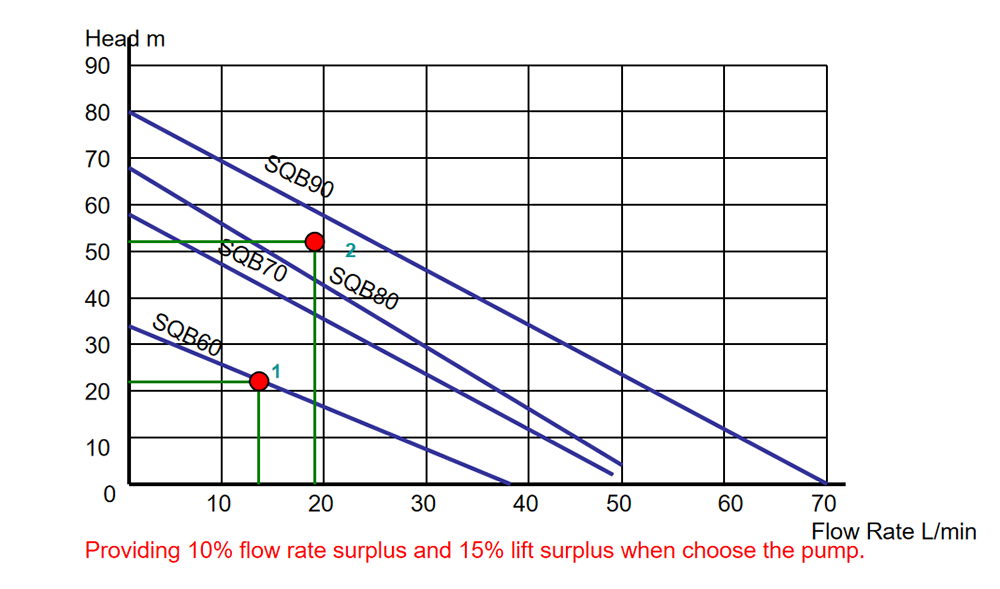
1.4 Motor Power:Power consumption is related to the actual operating cost of the client. For the same flow rate and lift, the actual power consumption of the pump should also be considered.
1.5 Liquid properties, including liquid name, temperature, density, viscosity, and particle content and gas content, are related to the lift of the system, the calculation of the effective NPSH, and the selection of the appropriate pump type. Determining whether the liquid has corrosive and toxic properties is an important basis for selecting pump materials and shaft seal types.
1.6 Additional features or functions, such as energy efficiency, variable speed, noise level or self-priming is also important factors to consider.
Quality and reliability are important when it comes to water pumping. Here are few tips to consider.
When selecting a water pump, it is crucial to choose a manufacturer with a proven track record of quality and industry expertise. Established brands that have been in the water pump business for years, with a reputation for engineering excellence, are typically the best option. These manufacturers have the necessary knowledge and experience to design and produce reliable, high-performing pumps that can withstand the rigors of various applications.
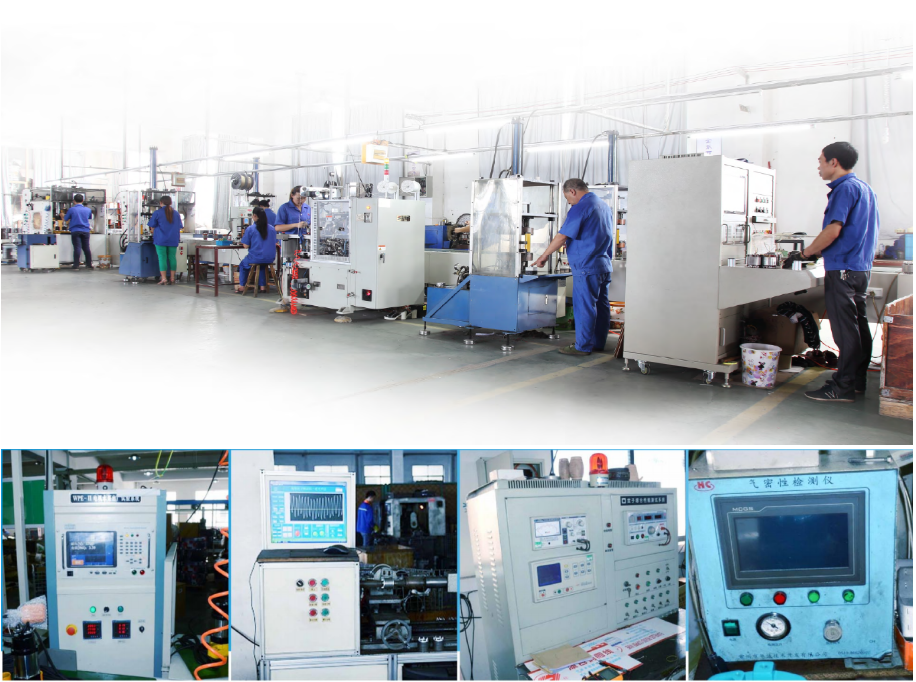
Verifying the certifications and accreditations held by the pump manufacturer is essential in ensuring quality and reliability. Look for pumps that are compliant with industry-recognized standards, such as CE, RoHs or different market access certification. These certifications demonstrate that the pumps have been rigorously tested and meet the required safety, performance, and reliability benchmarks.
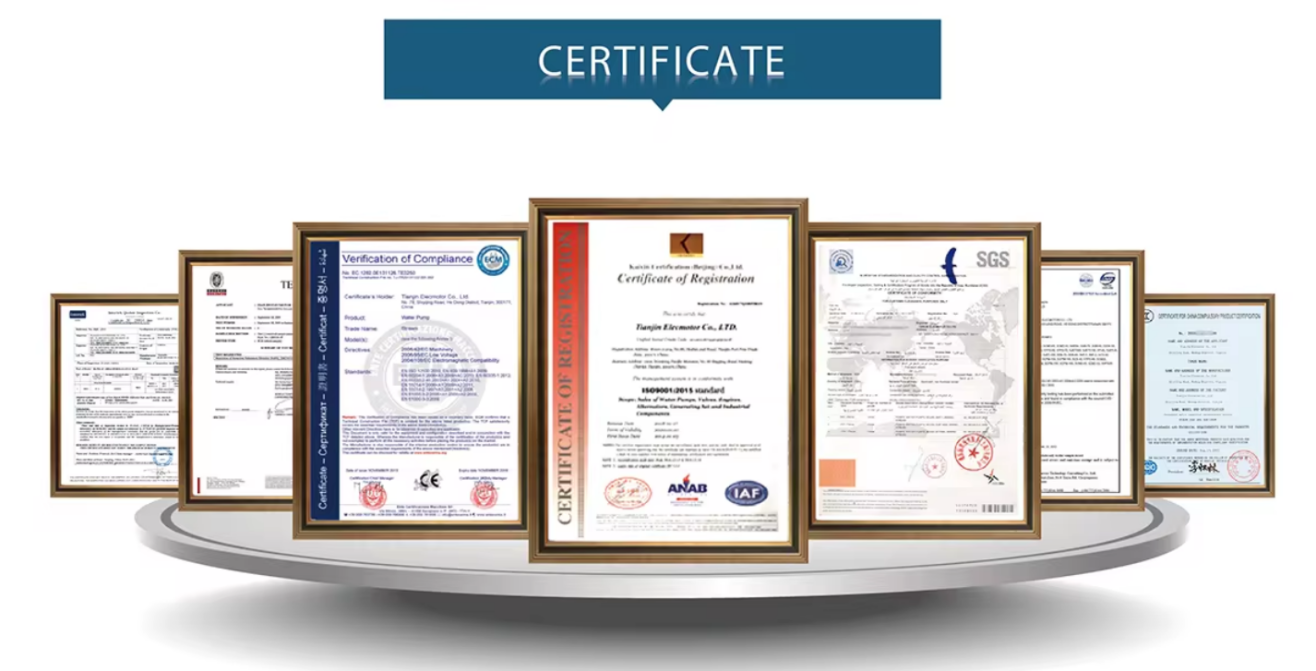
The materials used in the construction of a water pump play a significant role in its longevity and reliability. Opt for pumps that utilize corrosion-resistant components, such as stainless steel or high-grade plastics, to withstand the potentially harsh environments and chemicals they may encounter. These durable materials help extend the pump's lifespan and minimize the risk of premature failures.
Read customer reviews and testimonials can provide valuable insights into the real-world performance and reliability of a water pump. Look for feedback from users who have had long-term experience with the pump, as this can give you a better understanding of its durability, maintenance requirements, and overall satisfaction levels.
Consider the energy efficiency of the pump and how it will affect your total operating costs.
For water pumps with lower power or intermittent use, energy efficiency may not be the top priority. However, for high-power pumps or those used continuously, focusing on energy efficiency and total life cycle cost is crucial.
Look for pumps that have earned Energy Star ratings or other recognized energy efficiency certifications. These designations indicate that the pump has been designed and manufactured to optimize energy usage, which can lead to significant long-term cost savings on your electricity bills.
Variable speed drives can significantly reduce energy consumption by matching the pump's output to demand and has been quite popular now globally, especially in household and industrial booster pumps.
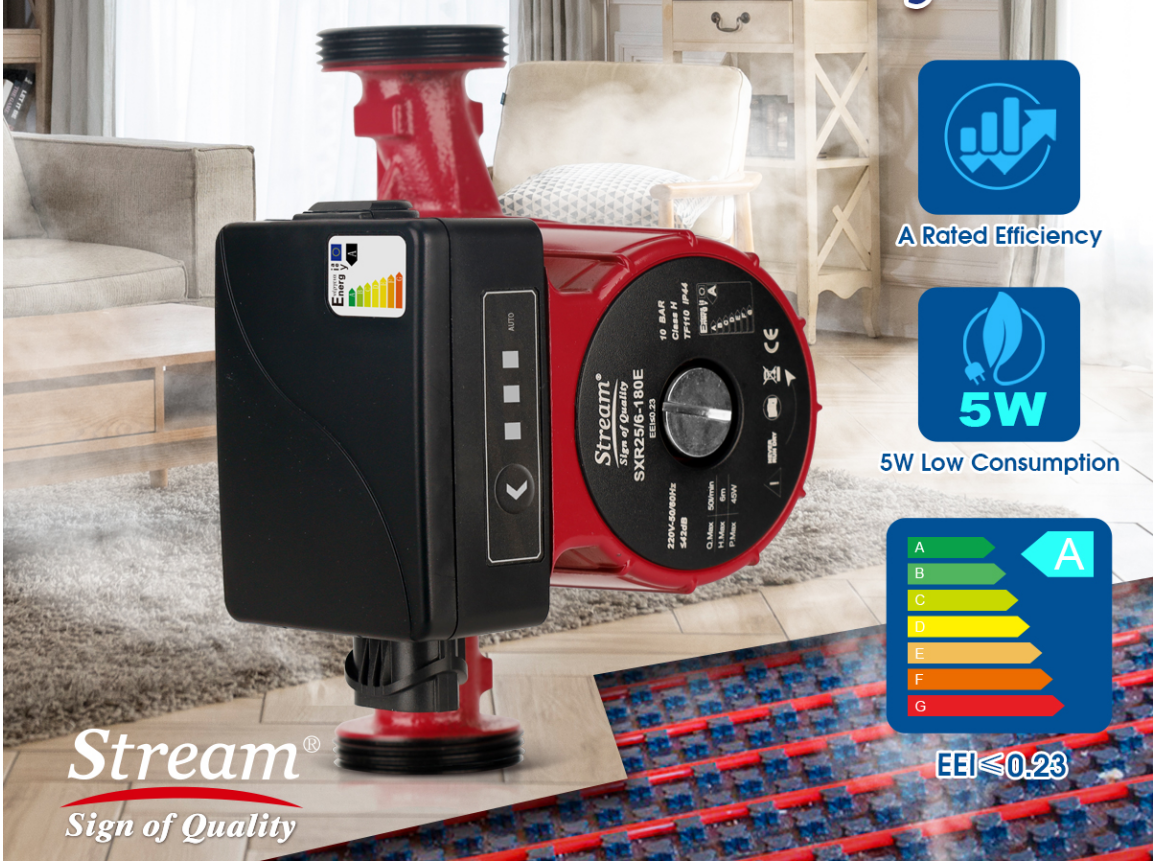
Ask for advice from professionals, such as engineers or pump specialists. They can give you guidance based on the needs that you have. Select pumps made by reputable manufacturers who have a track record of reliable and durable products.
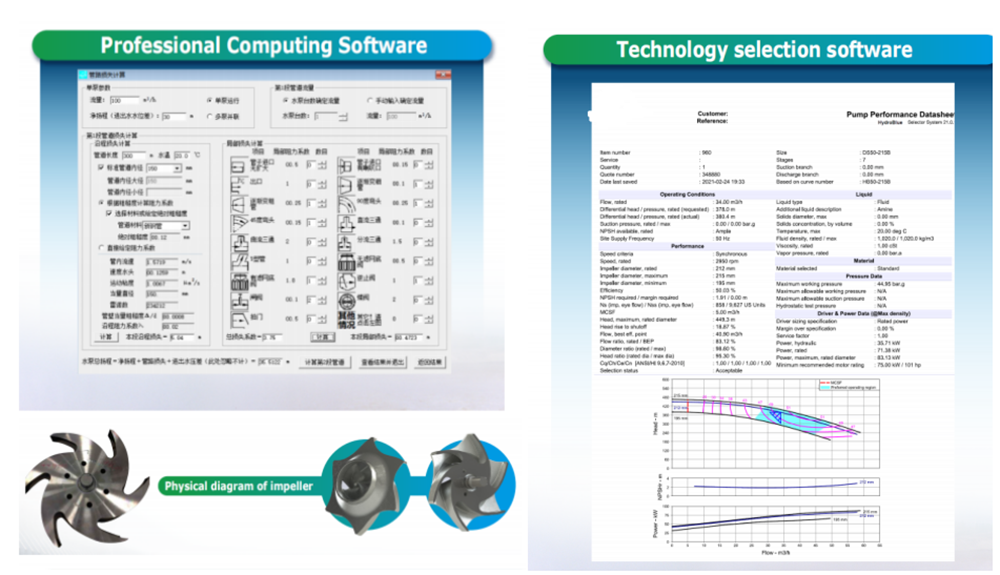
A warranty will give you peace of mind if there are any problems. Ask for the pump warranty terms before buying one.
Stream Pump offers 12 to 24 months warranty based on different pump types.
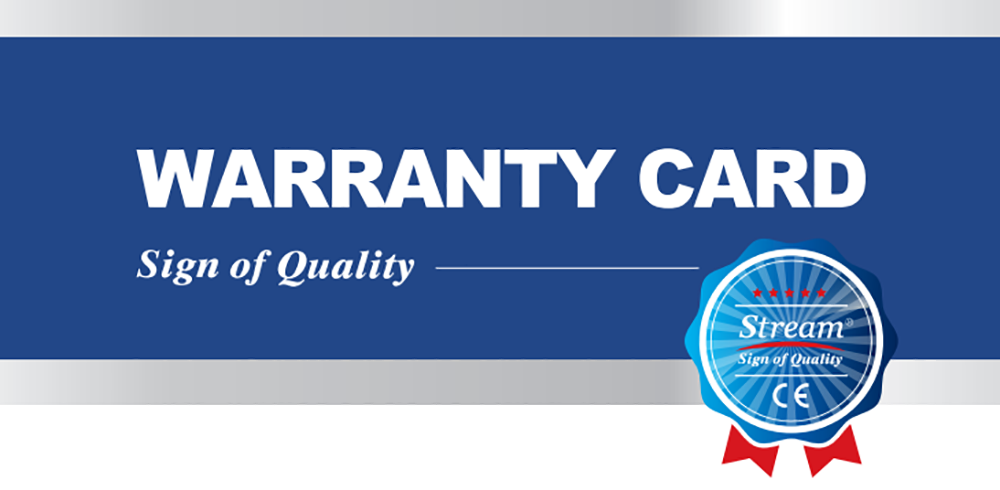
Understanding the maintenance requirements of the pump is important. This includes cleaning filters and impellers, replacing seals, and lubricating components. Some pumps only require minimal maintenance while others may need to be serviced more frequently. Pumps that are durable and well maintained can last many years. To determine its lifespan, consider the material and construction.
When purchasing a water-pump, reliability in after-sales support and technical assistance are important factors to consider. Assess the reputation of the manufacturer in terms of customer service, such as availability, response times, and expertise. Ask about the manufacturer's warranties, spare part availability and maintenance requirements. A reputable supplier of pumps should offer comprehensive support including installation advice, troubleshooting help, and recommendations for preventive maintenance. A pump manufacturer that has a robust support system will give you peace of mind, and minimise downtime if there are any problems.
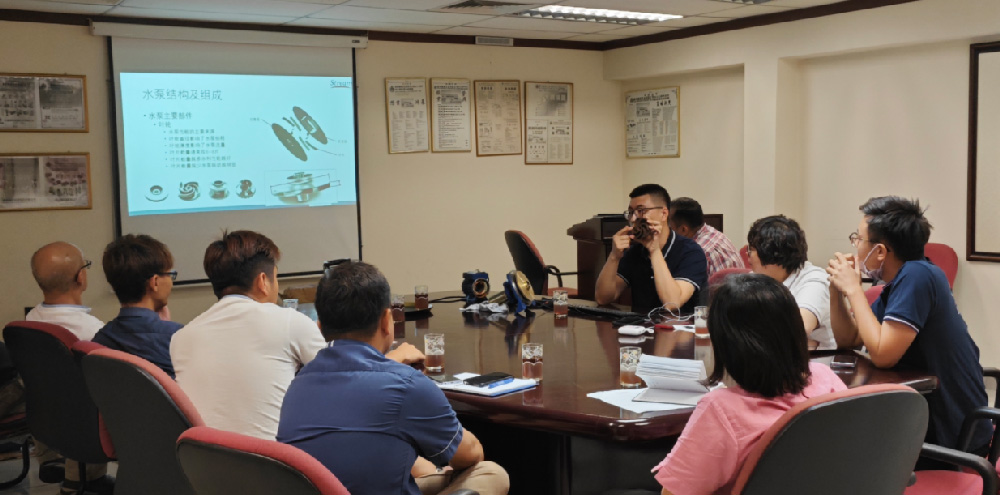
Consider the initial price of the pump to determine if it is within your budget. To determine the total cost over the life of the pump, consider the long-term expenses, such as maintenance, repairs and energy consumption.
Take into account the pump's environmental impact, particularly if it is used to handle hazardous substances. Make sure the pump you choose complies with all relevant environmental standards and regulations.
When choosing the high-quality water pump, you need to carefully consider a number of factors. These include your specific needs and match the pump with the intended application. You can be sure that the water pump you choose will provide reliable, cost-effective, and efficient performance for many years by assessing these factors thoroughly. You need to consider these factors such as flow rate, pressure requirement, power source and durability to make an informed choice that will ensure optimal performance for your water pumping requirements. Consult with professionals in the industry or reputable suppliers to get expert guidance and advice on selecting the high-quality water pump for your needs.
Answer: The lifespan of an indoor water pump depends on factors such as usage, maintenance and quality. Pumps that are well maintained can last 10 to 15 years on average. Regular inspections, timely repair, and use of the pump at its recommended capacity is necessary to ensure its longevity. For specific information on the life expectancy of your water pump, always refer to the manufacturer guidelines and warranty information.
Answer: High-quality water pumps require regular maintenance to maintain their efficiency and longevity. Maintenance tasks include:
Checking For Leaks:Inspect all connections and seals regularly for any signs or leaks.
Cleaning the Filters and Strainers:Cleaning the filters and strainers will prevent clogging, and ensure a smooth operation.
Lubrication:Lubricate moving parts according to the manufacturer's recommendations in order to reduce wear.
Inspecting electrical components:Check for signs of wear and damage on electrical connections.
Check the Pump Periodically:Run the pump to make sure it's working correctly. This is especially important if you don't use it often.
Answer: The most powerful high-quality water pump is determined by several factors, including the application, the required pressure and the flow rate. Powerful pumps are those that have higher horsepower motors or high pressure. Consider your needs, such as pressure and volume, to find the best pump.
Answer: It is important to take into consideration the following safety features when selecting a high-quality water pumps:
Thermal overload protection:Prevents motor overheating, by shutting the pump down automatically if it becomes too hot.
Automatic Shutoff:Stops pumping when the water runs out to prevent damage.
Pressure Relief Valves:Protects against excessive pressure building up, which could lead to leaks and bursts.
Non Return Valves:Prevents backflow and ensures water flows only in the direction desired.
Durable housing and seals:Ensures the pump is able to withstand harsh conditions, and reduces leakage or damage.
These features ensure that your high-quality water pump is safe and efficient, protecting the equipment as well as the user.
Answer: Calculate the volume of water that needs to be moved, and the number outlets that will all be used at the same time. This can be measured in gallons or liters. If you want to water multiple sprinklers simultaneously, for example, you can add up the flow rates to determine the total required flow rate. Consider peak times of use to make sure the pump is able to handle maximum demand.
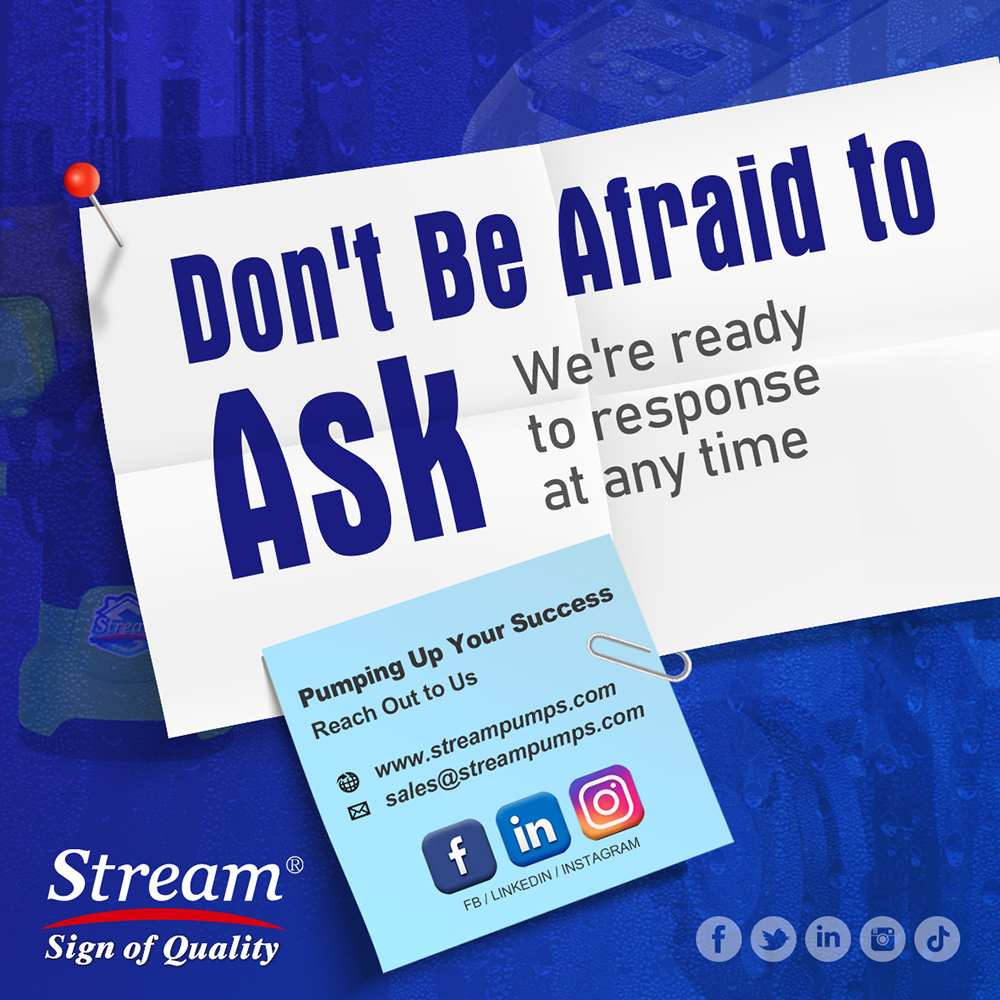
Address
No.17 XeDa Jimei Ind. Park, Xiqing Economic Development Area, Tianjin, China
Telephone
+86 13816508465
QUICK LINKS